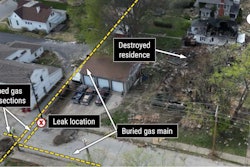
Over a year after pleading guilty to rigging bids, the former president of a Michigan asphalt company has been sentenced to six months in prison and a $500,000 fine.
Daniel L. Israel was sentenced May 22, 2025, after pleading guilty in October 2023 for his company, Asphalt Specialists, conspiring with another Michigan company, Al’s Asphalt Paving Company, to rig bids in each other’s favor. Al’s Asphalt Paving President Edward Swanson has also pleaded guilty to similar charges.
The crimes were part of a scheme from 2013 to 2018 to predetermine who would win contracts. One company would intentionally submit non-competitive bids.
Asphalt Specialists and Al’s Asphalt also each participated in separate schemes with Clarkston, Michigan-based F. Allied Construction Company Inc. and its employees.
F. Allied, its former president, Andrew Foster, and its former vice president of estimating, Kevin Shell, pleaded guilty in August 2023 for their participation in the conspiracies with Asphalt Specialists from July 2017 through May 2021, and with Al’s Asphalt from June 2013 through 2019.
Last year, Asphalt Specialists was charged $6.5 million for its role in the conspiracy, while Al’s Asphalt pleaded guilty and was sentenced to pay a fine of $795,661.81.
Timothy Baugher, a different former president of Asphalt Specialists, also pled guilty in January 2025 to similar charges surrounding the same scheme. He pleaded guilty to one count of violating Section 1 of the Sherman Antitrust Act and faces a maximum penalty of 10 years in prison and a $1 million criminal fine. The U.S. Department of Justice said the fine could be doubled to twice the gain derived from the crime or twice the victims’ loss if either is greater than the maximum fine.










